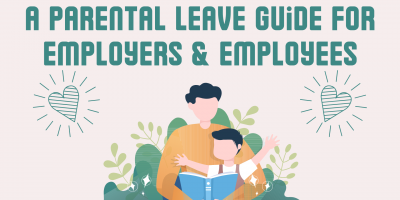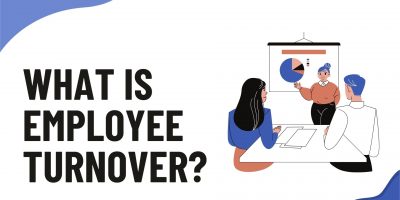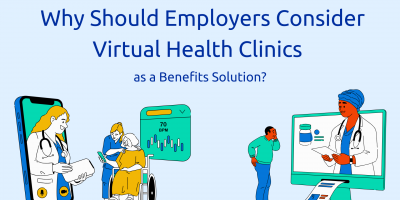
How Responsible is HR for the Well-Being of Employees?
Is HR the cornerstone for employee well-being? Uncover its role in transforming workplaces into thriving communities.


Sales Director at Vem Tooling
The quality of the human resources (HR) department can significantly affect a business’s prosperity. Its responsibility is to handle employee matters, making it an invaluable part of any company. As such, it should be the epitome of quality and professionalism.
Instead, HR holds a negative reputation.
A survey by BambooHR shows a significant disparity in how executives and employees perceive the human resources department.
Namely, 87% of executives feel comfortable approaching HR with a personal or a work-related problem, and 84% believe they offer excellent support, against 57% and 53% of employees in non-managerial roles, while managers are somewhere in between.
What’s even more concerning is that less than half of workers, or 46%, believe that the HR department effectively improves the workplace.
Evidence suggests that trust in HR proportionally decreases within the organizational hierarchy and that skepticism is most common among older workers.
The human resource department is a vital support in winning the talent war. Its primary purpose is to hire the most suitable workers and keep employees safe, healthy, and engaged in the workplace. It’s the component of every business that, hypothetically, brings everyone and everything together, ensuring cohesiveness within the firm.
As such, HR should be one of the company’s most helpful and valuable departments. However, for most employees, that is not the case.
By using unbiased data and expert opinions, this Shortlister article explores the predicament of this department in an attempt to uncover why we hate HR.
It would be presumptuous to say that, for a fact, employees hate HR, but some do.
There is a generally negative opinion about this department. However, it’s difficult to pinpoint the exact reason and use it as a statement against a business sector or an entire industry. It could be anything from job incompetence, management issues, or a disconnect between business administration and human resources.
Ultimately, it comes down to individualistic reasons resulting from one or more bad experiences.
From the archives of Fast Company’s magazine, an opinion piece from Keith H. Hammonds titled Why we hate HR perfectly sums up the misplaced potential of human resources in driving business performance.
Hammonds explains how they put the organization’s interests over those of the individual.
He references a study from 2005 by Hay Group Consultancy that demonstrates people’s displeasure with some aspects of HR and discloses the following findings:
Considering how most of these ideas fall under the job requirements of an HR representative, it’s easy to see why Hammonds was so vocal about his largely unfavorable opinion of HR.
In a way, it answers the question of why people hate HR. However, the data should be taken with reservation, seeing how things have progressed over the years.
The generational shift pushed organizations and human resources to rethink their strategies. Employee benefits are now more than a company perk and have become necessary. Younger workers want to be happy with their jobs, are more conscious of workplace burnout, and strive for a better work-life balance.
An Allegis Group report on recruiting and retaining Millennial and Gen Z talent reveals that 71% of HR professionals believe that outdated work practices, sketchy career paths, and limitations on advancement and development are negatively affecting employee retention.
On a corporate level, according to SunTrust’s 2019 annual Business Pulse survey, 43% of companies increased their benefits to stay competitive in the job market and retain their talent.
Unless they catch up on these changes soon, HR faces the risk of producing a whole new generation of workers with resentment towards their department.

Hammonds based his pessimistic stance on a series of negative examples, but his perception doesn’t speak for all employees.
David Reid, Sales Director at Vem Tooling, reflects on personal experience when he says that HR takes care of employees.
“I had the privilege of working with excellent human resources professionals in my organization, who support us in various ways by overseeing things like health plans, employee assistance programs, retirement planning, and disability benefits.
They also manage programs for ongoing education that are advantageous to both the employer and the employee, like certifications, course tuition reimbursement, or professional development. Giving workers a chance to improve their skill sets and industry knowledge improves their morale and encourages them to stay with the company.”
So, to answer the initial question – of course not, employees don’t love to hate HR.
It all comes down to the quality of the human resources department and how well it performs its job. Which brings us to the question – what exactly are HR’s responsibilities?
The human resources department goes by many names. From People Operations and People Experience to Human Capital Management and even the Head of People, these terms broadly describe the department’s objective – managing people, or more specifically, the employee cycle.
In that way, the role of a human resource specialist interconnects administrative responsibilities with employee care.
According to David Reid:

More specifically, the role of HR is to:
But also, to:
One of the reasons people dislike this department is because they misunderstand its purpose. Therefore, workers should know when to contact a human resource specialist to avoid unnecessary antipathy.

Talent is a company’s hidden asset.
Any organization that successfully hires and retains the best talent will always be one step ahead of its competition. Its human resources department plays a considerable role in winning this talent war.
The phrase “War for Talent” originated in 1997 and was coined by Steven Hankin of McKinsey & Company to describe the challenges of finding and hiring competent employees. Not long ago, one of the most pressing matters might’ve been obtaining skilled workers. Now, another issue ensues – attracting these workers and keeping them in the company.
It means an efficient HR must identify quality from hundreds, if not thousands, of applications, recognizing a candidate’s potential to fit the company culture beyond their adequate job credentials. Once it does, this department is also responsible for securing the hire and, in a way, keeping the employee content to secure a longer employment cycle.
But, as people shift their priorities, companies and their HR departments must stay on track if they want to win the war for talent.
Research shows that:
Choosing one company over another solely on a greater salary no longer seems to be the case, especially for the newer generation of workers.
With that in mind, companies and their HR departments should turn to employee-focused solutions, which, in return, will give them a competitive advantage and secure them the best and most skilled workers.
The human resources department doesn’t have an executive-level function. However, it does have matching precedence in the company since it works as a middleman between the employees and leadership.
Therefore, HR must have an overview of the business goals and objectives and align its strategy accordingly, which is a way to keep employees in the loop and help them navigate any changes.
There are several reasons why HR must align with the company’s objectives, including the potential to:
Sometimes, the company’s objectives can collide with those of its employees. While employers try to make profits and cut costs, workers demand better salaries and more benefits.
Ideally, HR should be able to propagate a solution that works for both parties, helping them meet in the middle and resolve the issue without significant retributions.
The reality, however, is much different. The human resources department mainly protects the company’s interests while maintaining at least a basic level of employee satisfaction.
Most HR representatives won’t concern themselves with solving an employee’s problem unless it directly threatens the organization. That, undoubtedly, increases the distrust between workers in non-managerial positions and paints an image of them as just courtiers of the bosses.
When an HR organization focuses on the company’s well-being by disregarding its employees, people in the workplace turn against each other, creating a discrepancy and tension that influences everyone.

The more efficient HR is, the more value it provides for the company.
But can we measure this?
The intricate process of measuring HR’s value goes beyond subtracting cost from profit. It’s intangible and estimates the outcome of both human resources ROI and VOI.
Renowned HR thought leader Dr. John Sullivan explains that human resource experts must identify their goals and develop two metrics for each, one covering the quantity of the output while the other the quality or result of the outcome.
As first-tier metrics, Sullivan references:
As second-tier metrics, he mentions:
For companies that struggle with the quality of their HR, this is an excellent way to determine the pain points, as well as calculate how efficient this department is and the exact value it brings to employees and the business.
The workplace is versatile and has seen significant transformations throughout history.
Before the 20th century, HR didn’t even exist as a concept. It wasn’t until 1901 when John H. Patterson, leader of the National Cash Register Company, created a new role to deal with employee lockouts and strikes, which he called “personnel.” Equivalent to today’s human resources, these people were in charge of record keeping, employee compliance, workplace safety, etc.
It means that more than a century ago, an employer realized how vital it is to have someone take care of their employees’ needs.
Nowadays, the necessity for quality HR is paramount, particularly after the latest abrupt shift in the concept of work. Faced with lockdowns and labor shortages, companies had to adapt quickly to accommodate workers with better conditions. Otherwise, they would risk losing their leading employees to competitors that reacted swiftly to this new and diverse workplace.
In the post-pandemic era, we now strive for environments that promote diversity and dignity at work, care for the workers’ physical and mental well-being, and allow flexibility through a four-day workweek, remote employment, or a hybrid work model.
How well a company executes this largely depends on its HR team, which further expands its role in the current workplace.
According to a McKinsey report, HR leaders should facilitate positive changes in these three key areas:
Seeing how hybrid working requires new policies, digital tools, and even new skills for the organization’s HR and employees, it’s safe to say that HR is heavily invested in building a new workplace.
Employees have unique needs, and a one-size-fits-all solution doesn’t work. Therefore, it is up to the human resource department to review the consequences of a potential workplace model shift, evaluate the economic impact, and find ways to update existing policies. That is, of course, without negatively affecting areas like recruiting, onboarding, performance, motivation, career growth opportunities, etc.
So, their job is to maintain a strong culture while digitizing everything or hiring and retaining the best talent and trying to lower costs for the organization.
It seems like an impossible mission.
That only points to how important this job is and that it takes a qualified person to do it. Falling short in any area could result in failure to fulfill the requirements of the post-pandemic workforce.

A bad company produces lousy HR.
When an employer enforces inadequate policies, even the most qualified and ethical human resource department has little to no power over business decisions like pay raises or employee benefits. Companies also hire unqualified people for this position to save money or to work with the “henchman” who will only tend to their needs.
Unfortunately, they don’t consider how this can only prolong the vicious cycle of incompetent HR representatives hiring unqualified workers in other company branches.
It’s what creates a negative reputation and why people hate HR. It’s also why companies need to address the issue and create the best human resource department to recruit and retain the most qualified workers.
Browse our curated list of vendors to find the best solution for your needs.
Subscribe to our newsletter for the latest trends, expert tips, and workplace insights!

Is HR the cornerstone for employee well-being? Uncover its role in transforming workplaces into thriving communities.

Explore the importance of parental leave in the US, shedding light on its impact on families and businesses. Delve into the complexities of existing policies, highlighting the challenges employers and employees face.

When a company has a reputation as a revolving-door employer, it becomes challenging to attract top talent, affecting the whole workforce dynamic. Thus, it is vital to understand what work turnover is, how to deal with it, and, better yet, prevent it from happening.

As healthcare continues to shift into the digital realm, employers must reevaluate their benefits packages to meet the growing demand for accessible care. Can virtual health clinics offer a solution to this challenge?
Used by most of the top employee benefits consultants in the US, Shortlister is where you can find, research and select HR and benefits vendors for your clients.
Shortlister helps you reach your ideal prospects. Claim your free account to control your message and receive employer, consultant and health plan leads.